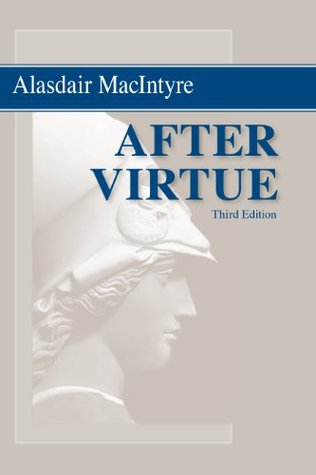Within analytical moral philosophy the resistance to emotivism has arisen from the perception that moral reasoning does occur, that there can be logical linkages between various moral judgments of a kind that emotivism itself could not allow for (‘therefore’ and ‘if… then… ’ are obviously not used as expressions of feeling). Yet the most influential account of moral reasoning that emerged in response to this critique of emotivism was one according to which an agent can only justify a particular judgment by referring to some universal rule from which it may be logically derived, and can only
...more
Welcome back. Just a moment while we sign you in to your Goodreads account.


